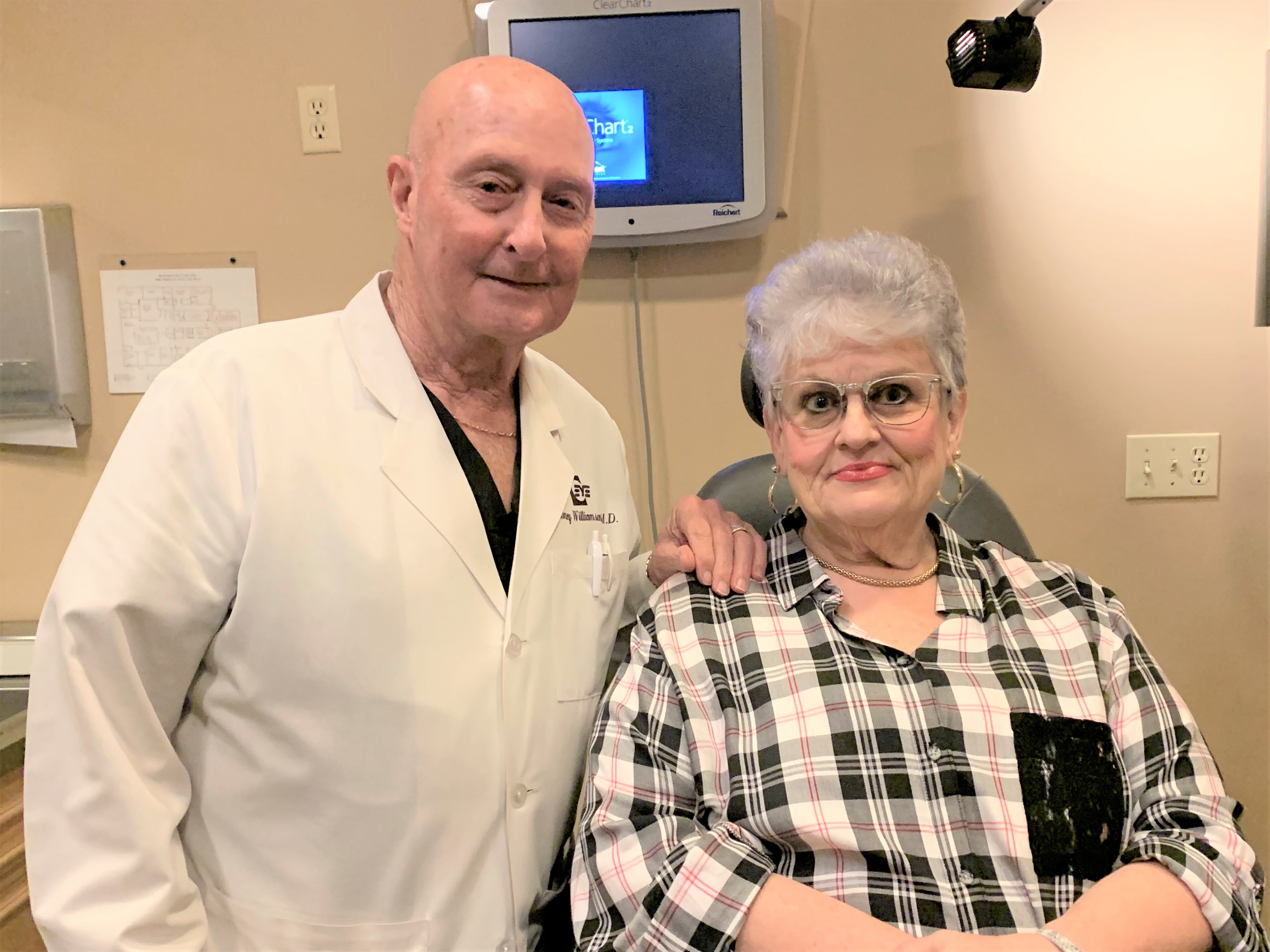 As we age, our risk for reduced vision goes up. A condition called macular degeneration plays a major role in this increased risk: The disease affects eyesight for more than 10 million older Americans, more than cataracts and glaucoma combined.
As we age, our risk for reduced vision goes up. A condition called macular degeneration plays a major role in this increased risk: The disease affects eyesight for more than 10 million older Americans, more than cataracts and glaucoma combined.
That’s why Hattiesburg Eye Clinic is joining with other eye care providers to recognize Age-Related Macular Degeneration Awareness Month during February. We want you to know the dangers to your sight posed by this disease–and what you can do about it.
Macular degeneration damages the macula, a part of the retina that enables us to see details in the center of our vision. “It’s an inherited condition,” says Dr. Stoney Williamson of Hattiesburg Eye Clinic. “Most patients are 65 and older when they begin to experience its effects.”
Early macular degeneration may be symptomless, but eventually patients will notice problems. They may have difficulty seeing fine details or clearly making out the shape, size and color of objects. Many begin seeing a dark, blind spot in their central vision field.
The disease can take two forms, dry or wet. Dry degeneration occurs when macula tissues thin out or deteriorate, gradually diminishing vision. Wet degeneration arises from abnormal blood vessels growing under the macula that begin to leak. This can produce distortion and blurriness, and the possibility of sudden and severe vision loss.
The latter describes what happened to Ramona Forbes, a Hattiesburg Eye Patient. A routine eye exam in 2015 revealed she had macular degeneration, although she hadn’t noticed any problems. That changed unexpectedly in early 2020.
“I was talking on the phone when something happened in my left eye,” says Forbes. “My vision became wavy and I began to see a dark spot.”After a follow-up exam, Dr. Williamson immediately referred her to Hattiesburg retina specialist Dr. Wright Lauten of Retina Specialists of Mississippi. Dr. Lauten injected a solution in both her eyes to inhibit the growth of abnormal blood vessels in the macula.
Injections are a fairly new and promising treatment for wet degeneration. But it, as well as lasers and similar treatments, can’t cure the disease, only slow its progression. And the only means that might slow dry degeneration is through dietary therapy involving certain vitamins.
The best results come from early diagnosis, usually with the aid of a routine eye exam. “We recommend you begin having an annual eye exam at age 40, or earlier if you have a family history of macular degeneration,” says Dr. Williamson.
Discovering you have macular degeneration will begin a life-long battle against this damaging disease. But early diagnosis and ongoing care could help you minimize your vision loss and protect your quality of life.
For more information about this major eye disease, visit our webpage on macular degeneration. To learn more about how Hattiesburg Eye Clinic can improve your vision health, call 601-268-5910 (or toll-free 800-624-8254) or schedule a consultation with us.
